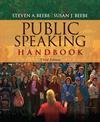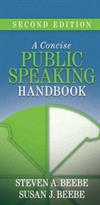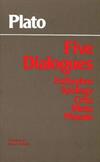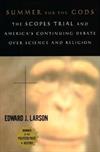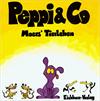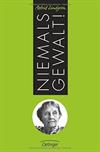
Freakonomics - A rogue economist explores the hidden side of everything
by Steven D. Levitt, Stephen J. Dubner | Nonfiction |
ISBN: 006073132x Global Overview for this book
ISBN: 006073132x Global Overview for this book
5 journalers for this copy...
Economics is not widely considered to be one of the sexier sciences. The annual Nobel Prize winner in that field never receives as much publicity as his or her compatriots in peace, literature, or physics. But if such slights are based on the notion that economics is dull, or that economists are concerned only with finance itself, Steven D. Levitt will change some minds. In Freakonomics (written with Stephen J. Dubner), Levitt argues that many apparent mysteries of everyday life don't need to be so mysterious: they could be illuminated and made even more fascinating by asking the right questions and drawing connections. For example, Levitt traces the drop in violent crime rates to a drop in violent criminals and, digging further, to the Roe v. Wade decision that preempted the existence of some people who would be born to poverty and hardship. Elsewhere, by analyzing data gathered from inner-city Chicago drug-dealing gangs, Levitt outlines a corporate structure much like McDonald's, where the top bosses make great money while scores of underlings make something below minimum wage. And in a section that may alarm or relieve worried parents, Levitt argues that parenting methods don't really matter much and that a backyard swimming pool is much more dangerous than a gun. These enlightening chapters are separated by effusive passages from Dubner's 2003 profile of Levitt in The New York Times Magazine, which led to the book being written. In a book filled with bold logic, such back-patting veers Freakonomics, however briefly, away from what Levitt actually has to say.
I found this book very interesting & amusing but then again, I always love werid stats.
I found this book very interesting & amusing but then again, I always love werid stats.
sending to Megi53 & daughter....hang in there hon!!
I was so happy to see this in today's mail! I'll give it to my daughter when she comes home on Friday for Fall Break.
I want to grab some time to read a bit in it, too -- especially to find out why drug dealers still live with their moms!
Thanks so much for choosing me for "I Want To Make You Smile". :-D
I want to grab some time to read a bit in it, too -- especially to find out why drug dealers still live with their moms!
Thanks so much for choosing me for "I Want To Make You Smile". :-D
In addition to the drug dealers, I read the chapter about names and their effects on people's earning power.
I'm actually surprised the authors of this book weren't accused of being racists, just like the guys who wrote The Bell Curve.
That said, how do you explain the success of Condoleeza? And one of the best students who ever went through my school, who won a 4-year all-fees-paid-plus spending money scholarship to a prestigious northern university, is named -- Shavarski (after the crystals).
Enough of my rambling. I gave this to Twixxy when she visited last weekend and she was thrilled. She really doesn't get Bookcrossing, though -- asked me, "When is this book due?" :-D
I'm actually surprised the authors of this book weren't accused of being racists, just like the guys who wrote The Bell Curve.
That said, how do you explain the success of Condoleeza? And one of the best students who ever went through my school, who won a 4-year all-fees-paid-plus spending money scholarship to a prestigious northern university, is named -- Shavarski (after the crystals).
Enough of my rambling. I gave this to Twixxy when she visited last weekend and she was thrilled. She really doesn't get Bookcrossing, though -- asked me, "When is this book due?" :-D
Now that Twixxy is through with Econ and has read the book, I finished the chapters which I'd skipped over when the book came. I was shocked about teachers changing their students' answers (and the fact that they got some of the answers wrong!) but even worse was the conniving and colluding of the sumo wrestlers! Is there no sport left untainted?
The first chapter about parents pointed out the difference between correlation and causality, as demonstrated by number-of-books-in-the-house and visits-to-museums not having an effect on childrens' intelligence, but merely being associated with parents' having money. Sobering about adoption and low achievement!
It was quite a different reading experience for me, and a valuable mental exercise. Sending to a Canadian bookcrosser soon.
The first chapter about parents pointed out the difference between correlation and causality, as demonstrated by number-of-books-in-the-house and visits-to-museums not having an effect on childrens' intelligence, but merely being associated with parents' having money. Sobering about adoption and low achievement!
It was quite a different reading experience for me, and a valuable mental exercise. Sending to a Canadian bookcrosser soon.
Journal Entry 6 by nwpassage from Prince George, British Columbia Canada on Monday, November 27, 2006
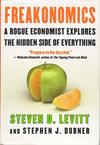 Arrived today. Thanks so much Megi for this wishlist RABCK! :) TBR
Arrived today. Thanks so much Megi for this wishlist RABCK! :) TBRFrom the front cover:
FREAKONOMICS
A ROGUE ECONOMIST EXPLORES THE HIDDEN SIDE OF EVERYTHING
STEVEN D. LEVITT AND STEPHEN J. DUBNER
"Prepare to be dazzled." -- Malcolm Gladwell, author of The Tipping Point and Blink
From the back cover:
Advance Praise for FREAKONOMICS
"Steven Levitt has the most interesting mind in America, and reading Freakonomics is like going for a leisurely walk with him on a sunny summer day as he waves his fingers in the air and turns everything you once thought to be true inside out. Prepare to be dazzled." -- Malcolm Gladwell, author of The Tipping Point and Blink
"In an age of too much wishful, faith-based conventional wisdom on the right and left, and too much intellectual endeavor squeezed into prefab ideological containers, Freakonomics is politically incorrect in the best, most essential way. Levitt and Dubner suss out all kinds of surprising truths -- sometimes important ones, sometimes merely fascinating ones -- by means of a smart, deep, rigorous, open-minded consideration of facts, with a fearless disregard for whom they might be upsetting. This is bracing fun of the highest order." -- KURT ANDERSEN, host of public radio's Studio 360 and author of Turn of the Century
From the dust jacket flap:
Which is more dangerous, a gun or a swimming pool? What do schoolteachers and sumo wrestlers have in common? Why do drug dealers still live with their moms? How much do parents really matter? What kind of impact did Roe v. Wade have on violent crime?
These may not sound like typical questions for an economist to ask. But Steven D. Levitt is not a typical economist. He is a much heralded scholar who studies the stuff and riddles of everyday life -- from cheating to crime to sports and child rearing -- and whose conclusions regularly turn the conventional wisdom on its head. He usually begins with a mountain of data and a simple, unasked question. Some of these questions concern life-and-death issues; others have an admittedly freakish quality. Thus the new field of study contained in this book: freakonomics.
Through forceful storytelling and wry insight, Levitt and co-author Stephen J. Dubner show that economics is, at root, the study of incentives -- how people get what they want, or need, especially when other people want or need the same thing. In Freakonomics, they set out to explore the hidden side of... well, everything. The inner workings of a crack gang. The truth about real-estate agents. The myths of campaign finance. The telltale marks of a cheating schoolteacher. The secrets of the Ku Klux Klan.
What unites all these stories is a belief that the modern world, despite a surfeit of obfuscation, complication, and downright deceit, is not impenetrable, is not unknowable, and -- if the right questions are asked -- is even more intriguing than we think. All it takes is a new way of looking. Steven Levitt, through devilishly clever and clear-eyed thinking, shows how to see through all the clutter.
Freakonomics establishes this unconventional premise: if morality represents how we would like the world to work, then economics represents how it actually does work. It is true that readers of this book will be armed with enough riddles and stories to last a thousand cocktail parties. But Freakonomics can provide more than that. It will literally redefine the way we view the modern world.
STEVEN D. LEVITT teaches economics at the University of Chicago; he recently received the John Bates Clark Medal, awarded every two years to the best American economist under forty.
STEPHEN J. DUBNER lives in New York City; he writes for the New York Times and The New Yorker and is the national bestselling author of Turbulent Souls and Confessions of a Hero-Worshiper.
Journal Entry 7 by nwpassage from Prince George, British Columbia Canada on Sunday, November 30, 2008
During the last BookObsessed Raiding Bookshelves swap, this was one of the books my raider picked, so I pulled it off the pile and started in. I soon regretted leaving it for so long before picking it up... this was such an engrossing and fast read for me, I burned right through it! I was expecting this to be interesting but dry, instead it was incredibly readable. I loved it! Giz (not my original raider) was the one who ended up with this in the swap, so it will be mailed off to her soon.
Some favourite quotes:
"This book, then, has been written from a very specific worldview, based on a few fundamental ideas:
Incentives are the cornerstone of modern life.
The conventional wisdom is often wrong.
Dramatic effects often have distant, even subtle, causes.
"Experts" -- from criminologists to real-estate agents -- use their informational advantage to serve their own agenda.
Knowing what to measure and how to measure it makes a complicated world much less so."
"An incentive is simply a means of urging people to do more of a good thing and less of a bad thing. But most incentives don't come about organically. Someone -- an economist or a politician or a parent -- has to invent them. ... There are three basic flavors of incentive: economic, social, and moral. Very often a single incentive scheme will include all three varieties."
"It was John Kenneth Galbraith who coined the phrase "conventional wisdom". He did not consider it a compliment. "We associate truth with convenience," he wrote, "with what most closely accords with self-interest and personal well-being or promises best to avoid awkward effort or unwelcome dislocation of life. We also find highly acceptable what contributes most to self-esteem." Economic and social behavior, Galbraith continued, "are complex, and to comprehend their character is mentally tiring. Therefore we adhere, as though to a raft, to those ideas which represent our understanding."
So the conventional wisdom in Galbraith's view must be simple, convenient, comfortable, and comforting -- though not necessarily true. It would be silly to argue that the conventional wisdom is never true. But noticing where the conventional wisdom may be false -- noticing, perhaps, the contrails of sloppy or self-interested thinking -- is a nice place to start asking questions."
"Women's rights advocates, for instance, have hyped the incidence of secual assault, claiming that one in three American women will in their lifetime be a victim of rape or attempted rape. (The actual figure is more like one in eight -- but the advocates know it would take a callous person to publicly dispute their claims.)"
"To the kids growing up in a housing project on Chicago's south side, crack dealing was a glamour profession. For many of them, the job of gang boss -- highly visible and highly lucrative -- was easily the best job they thought they had access to. ...
The problem with crack dealing is the same as in every other glamour profession: a lot of people competing for a very few prizes. Earning big money in the crack gang wasn't much more likely than the Wisconsin farm girl becoming a movie star or the high-school quarterback playing in the NFL. But criminals, like everyone else, respond to incentives. So if the prize is big enough, they will form a line down the block just hoping for a chance. On the south side of Chicago, people wanting to sell crack vastly outnumbered the available street corners.
These budding drug lords bumped up against an immutable law of labor: when there are a lot of people willing and able to do a job, that job generally doesn't pay well. This is one of four meaningful factors that determine a wage. The others are the specialized skills a job requires, the unpleasantness of a job, and the demand for services that the job fulfills.
The delicate balance between these factors helps explain why, for instance, the typical prostitute earns more than the typical architect. It may not seem as though she should. The architect would appear to be more skilled and better educated. But little girls don't grow up dreaming of becoming prostitutes, so the supply of potential prostitutes is relatively small. The job is unpleasant and forbidding in at least two significant ways: the likelihood of violence and the lost opportunity of having a stable home life. As for demand? Let's just say that an architect is more likely to hire a prostitute than vice versa.
In the glamour professions -- movies, sports, music, fashion -- there is a different dynamic at play. Even in second-tier glamour industries like publishing, advertising, and media, swarms of bright young people throw themselves at grunt jobs that pay poorly and demand unstinting devotion. An editorial assistant earning $22,000 at a Manhattan publishing house, an unpaid high-school quarterback, and a teenage crack dealer earning $3.30 an hour are all playing the same game, a game that is best viewed as a tournament.
The rules of a tournament are straightforward. You must start at the bottom to have a shot at the top. You must be willing to work long and hard at substandard wages. In order to advance in the tournament, you must prove yourself not merely about average but spectacular. (The way to distinguish yourself differs from profession to profession, of course.) And finally, once you come to the sad realization that you will never make it to the top, you will quit the tournament. (Some people hang on longer than others -- witness the graying "actors" who wait tables in New York -- but people generally get the message quite early.)"
Peter Sandman's (a self-described "risk communication consultant") "control" principle: "The basic reality is that the risks that scare people and the risks that kill people are very different. ... Risks that you can ctonrol are much less a source of outrage than risks that are out of your control."
"The fear of death needs to be narrowed down. Of course we all know that we are bound to die, and we might worry about it casually. But if you are told that you have a 10 percent chance of dying within the next year, you might worry a lot more, perhaps even choosing to live your life differently. And if you are told that you have a 10 percent chance of dying within the next minute, you'll probably panic. So it's the imminent possibility of death that drives the fear -- which means that the most reasonable way to calculate fear of death would be to think about it on a per-hour basis."
"Consider the eight ECLS factors that are correlated with school test scores, and the eight factors that are not. To overgeneralize a bit, the first list describes things that parents are; the second list describes things that parents do. Parents who are well educated, successful, and healthy tend to have children who test well in school; but it doesn't seem to much matter whether a child is trotted off to museums or spanked or sent to Head Start or frequently read to or plopped in front of the television."
Some favourite quotes:
"This book, then, has been written from a very specific worldview, based on a few fundamental ideas:
Incentives are the cornerstone of modern life.
The conventional wisdom is often wrong.
Dramatic effects often have distant, even subtle, causes.
"Experts" -- from criminologists to real-estate agents -- use their informational advantage to serve their own agenda.
Knowing what to measure and how to measure it makes a complicated world much less so."
"An incentive is simply a means of urging people to do more of a good thing and less of a bad thing. But most incentives don't come about organically. Someone -- an economist or a politician or a parent -- has to invent them. ... There are three basic flavors of incentive: economic, social, and moral. Very often a single incentive scheme will include all three varieties."
"It was John Kenneth Galbraith who coined the phrase "conventional wisdom". He did not consider it a compliment. "We associate truth with convenience," he wrote, "with what most closely accords with self-interest and personal well-being or promises best to avoid awkward effort or unwelcome dislocation of life. We also find highly acceptable what contributes most to self-esteem." Economic and social behavior, Galbraith continued, "are complex, and to comprehend their character is mentally tiring. Therefore we adhere, as though to a raft, to those ideas which represent our understanding."
So the conventional wisdom in Galbraith's view must be simple, convenient, comfortable, and comforting -- though not necessarily true. It would be silly to argue that the conventional wisdom is never true. But noticing where the conventional wisdom may be false -- noticing, perhaps, the contrails of sloppy or self-interested thinking -- is a nice place to start asking questions."
"Women's rights advocates, for instance, have hyped the incidence of secual assault, claiming that one in three American women will in their lifetime be a victim of rape or attempted rape. (The actual figure is more like one in eight -- but the advocates know it would take a callous person to publicly dispute their claims.)"
"To the kids growing up in a housing project on Chicago's south side, crack dealing was a glamour profession. For many of them, the job of gang boss -- highly visible and highly lucrative -- was easily the best job they thought they had access to. ...
The problem with crack dealing is the same as in every other glamour profession: a lot of people competing for a very few prizes. Earning big money in the crack gang wasn't much more likely than the Wisconsin farm girl becoming a movie star or the high-school quarterback playing in the NFL. But criminals, like everyone else, respond to incentives. So if the prize is big enough, they will form a line down the block just hoping for a chance. On the south side of Chicago, people wanting to sell crack vastly outnumbered the available street corners.
These budding drug lords bumped up against an immutable law of labor: when there are a lot of people willing and able to do a job, that job generally doesn't pay well. This is one of four meaningful factors that determine a wage. The others are the specialized skills a job requires, the unpleasantness of a job, and the demand for services that the job fulfills.
The delicate balance between these factors helps explain why, for instance, the typical prostitute earns more than the typical architect. It may not seem as though she should. The architect would appear to be more skilled and better educated. But little girls don't grow up dreaming of becoming prostitutes, so the supply of potential prostitutes is relatively small. The job is unpleasant and forbidding in at least two significant ways: the likelihood of violence and the lost opportunity of having a stable home life. As for demand? Let's just say that an architect is more likely to hire a prostitute than vice versa.
In the glamour professions -- movies, sports, music, fashion -- there is a different dynamic at play. Even in second-tier glamour industries like publishing, advertising, and media, swarms of bright young people throw themselves at grunt jobs that pay poorly and demand unstinting devotion. An editorial assistant earning $22,000 at a Manhattan publishing house, an unpaid high-school quarterback, and a teenage crack dealer earning $3.30 an hour are all playing the same game, a game that is best viewed as a tournament.
The rules of a tournament are straightforward. You must start at the bottom to have a shot at the top. You must be willing to work long and hard at substandard wages. In order to advance in the tournament, you must prove yourself not merely about average but spectacular. (The way to distinguish yourself differs from profession to profession, of course.) And finally, once you come to the sad realization that you will never make it to the top, you will quit the tournament. (Some people hang on longer than others -- witness the graying "actors" who wait tables in New York -- but people generally get the message quite early.)"
Peter Sandman's (a self-described "risk communication consultant") "control" principle: "The basic reality is that the risks that scare people and the risks that kill people are very different. ... Risks that you can ctonrol are much less a source of outrage than risks that are out of your control."
"The fear of death needs to be narrowed down. Of course we all know that we are bound to die, and we might worry about it casually. But if you are told that you have a 10 percent chance of dying within the next year, you might worry a lot more, perhaps even choosing to live your life differently. And if you are told that you have a 10 percent chance of dying within the next minute, you'll probably panic. So it's the imminent possibility of death that drives the fear -- which means that the most reasonable way to calculate fear of death would be to think about it on a per-hour basis."
"Consider the eight ECLS factors that are correlated with school test scores, and the eight factors that are not. To overgeneralize a bit, the first list describes things that parents are; the second list describes things that parents do. Parents who are well educated, successful, and healthy tend to have children who test well in school; but it doesn't seem to much matter whether a child is trotted off to museums or spanked or sent to Head Start or frequently read to or plopped in front of the television."
Journal Entry 8 by nwpassage from Prince George, British Columbia Canada on Thursday, January 22, 2009
FINALLY mailed yesterday -- sorry for the long wait, Giz! Hope you enjoy this as much as I did. :)
Journal Entry 9 by Giz-angel from Greenwich, Greater London United Kingdom on Thursday, February 26, 2009
Thanks NWP I am sure I will - I have heard lots of good things about this book :) and totally no worries about the wait I am SO not running short of books LOL xx
Journal Entry 10 by Sunnybubble from Wallasey, Merseyside United Kingdom on Wednesday, February 10, 2010
Thanks Gizzy - for some reason kept forgetting to JE this!


